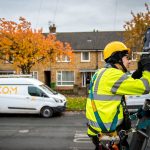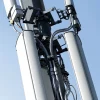Ofcom UK Approve Indoor and In-Car Mobile Signal Boosters
The UK telecoms regulator has today announced their decision to licence exempt “mobile phone repeaters” for indoor use and in-vehicle (low gain) use from early 2018. The move means that previously unlawful amplifiers could now be used to boost 2G, 3G and 4G mobile signals, albeit only under strict conditions.
At present it’s still unlawful (unless approved by a Mobile Network Operator like Three UK, O2, Vodafone or EE) for consumers to use repeaters that boost and retransmit UK mobile signals, which can help to improve local mobile coverage but may also cause interference or other adverse effects for nearby customers if not correctly managed.
Ofcom’s new policy changes this and would of course come attach to some extra conditions, such as a requirement that the repeaters operate only over the frequency bands of any single licensed network operator at a given time. Related devices must also adjust their power to the minimum necessary to make a reliable connection and incorporate anti-oscillation measures.
Advertisement
Ofcom’s Statement
Having carefully considered the responses we received, our decision is that we should make the use of certain mobile phone repeaters lawful on a licence exempt basis. However, we have made several changes to the technical requirements to remove some ambiguity and to ensure that the operation of repeaters is not likely to involve undue interference or adversely affect the technical quality of service of mobile networks or other services. We will:
• make it clear that transmissions on downlink frequencies shall only be authorised indoors or in-vehicle as appropriate and remove the wording “intended for”;
• make the radiated limits explicit with a TRP2 limit for in-vehicle repeaters and an EIRP3 limit for indoor repeaters;
• limit mobile phone repeaters, when re-transmitting GSM uplink signals in the 900 MHz band to a maximum power of 2 Watts and in the 1800 MHz band to a maximum power of 1 Watt4;
• not include the 2.6 GHz band in the licence exemption for the time being pending further discussion with the MOD and the Civil Aviation Authority (“CAA”);
• specify the downlink power limit as 10 dBm / 5 MHz, capped at 17 dBm for wider bandwidth systems. This limit will facilitate the use of wider channels, such as 10 or 20 MHz LTE carriers;
• clarify that the 100 dB gain limit for indoor mobile phone repeaters is a maximum system gain limit; and
• include a maximum noise figure of 7 dB in our technical requirements.
Ofcom do not intend to prescribe the mobile phone technologies that can be used with these repeaters (although they do exclude 2.6GHz for now and that’s often used with 4G) and static wideband repeaters will remain unlawful.
Ofcom’s Technical Requirements (Mobile Repeaters)
https://www.ofcom.org.uk/../Repeaters-Statement-2017.pdf
Mark is a professional technology writer, IT consultant and computer engineer from Dorset (England), he also founded ISPreview in 1999 and enjoys analysing the latest telecoms and broadband developments. Find me on X (Twitter), Mastodon, Facebook, BlueSky, Threads.net and Linkedin.

















































Comments are closed